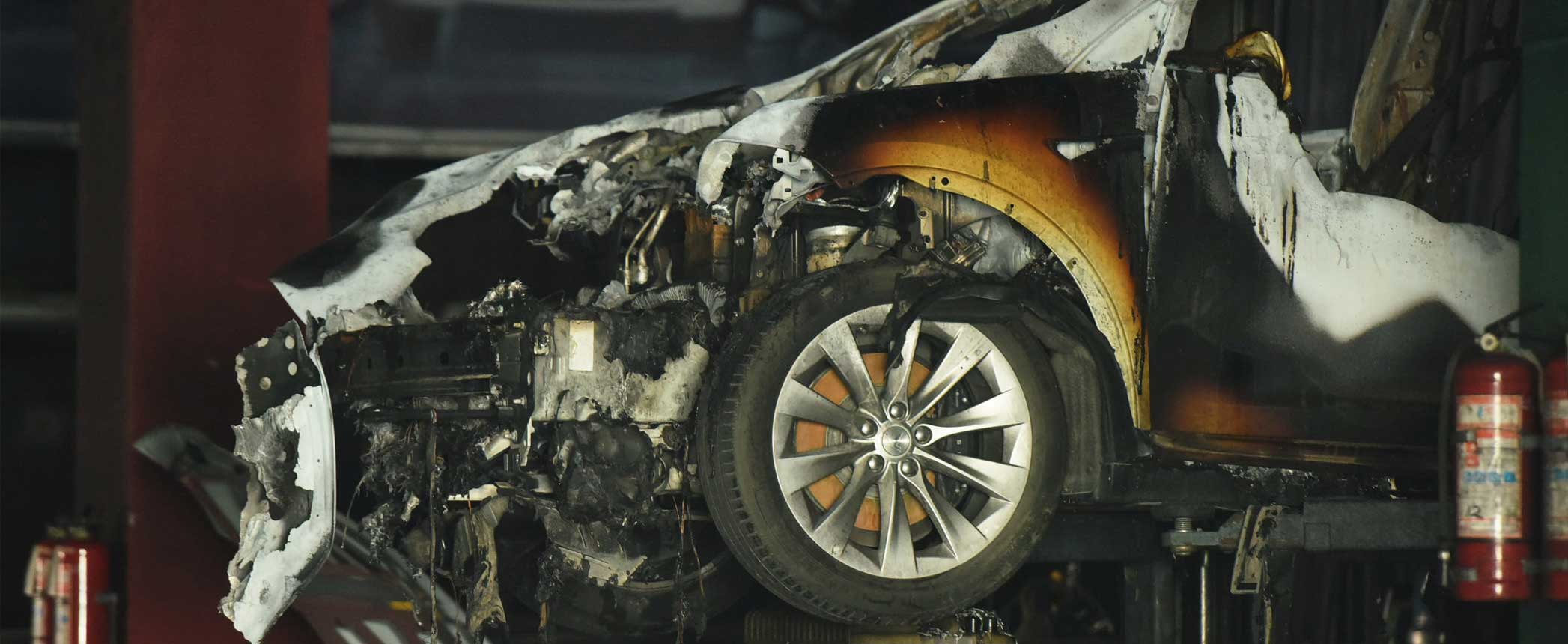
The world-famous Tesla is an impressive piece of engineering and design. But its rise to the top of the market has been beset by financial and commercial challenges, which have been largely overcome. There is one more PR hiccup, at least – they spontaneously combust.
After a series of battery fires, the United States agency responsible for vehicle safety opened a defect petition into Tesla’s Model S and Model X produced between 2012 and 2019.
The National Highway Traffic and Safety Administration’s probe is wide, demanding the electric vehicle maker hand over all documents related to “high-voltage battery fires that are not related to collision or impact damage to the battery pack,” read the eight-page petition letter sent to Tesla’s legal team.
The NHTSA stresses it is not an investigation. The petition merely requests “all original written, printed, typed, recorded or graphic material whatsoever … of every kind, nature and description.” This is defined as papers, letters, memos, emails, charts, tables, appointment books, diaries, travel reports, blueprints and more than 100 other sources of communication and information modes. The request also applies to contractors, consultants and agencies associated with the vehicles’ battery.
The NHTSA is focused on certain battery management system software updates found in the models after an “alarming number of car fires that have occurred worldwide,” the petition and agency said. There have been 40 fires in the past 10 years, according to CNN, which although alarming, pales in comparison with gasoline car fires.
“This isn’t good for Tesla,” said one auto analyst, who wanted to remain anonymous, and added that Tesla has name recognition and the trust of EV buyers. It is unclear if another round of possible battery defects will have much of an impact on the EV maker.
“Before, Tesla was one of a few electric vehicle makers, but now major automakers are producing EVs. If the EV market loses trust in Tesla, that could seriously hurt a struggling company,” he said.
Tesla has faced a number of challenges involving its vehicles recently. A Florida man died when his Model S caught fire after crashing into a palm tree in February. Authorities said the man could not get out because the electronic door handles would not open. In March, another Florida man died after he crashed into a tractor trailer while the autopilot was on in his 2018 Model S.
|
There have been 40 fires in the past 10 years, according to CNN, which although alarming, pales in comparison with gasoline car fires.
|
After investigating the battery fire, the NHTSA can decide to issue a recall, which would be financially burdensome to Tesla and tarnish its reputation, or, as required by law, publish its findings in the Federal Register if a recall is not needed.
The fires occurred while Tesla is working on reducing its battery cost, according to media reports. In recent years, Tesla has struggled with waste and quality control at its large Nevada battery plant known as the Gigafactory.
In 2016, Tesla’s CEO and Founder Elon Musk said on CNBC that he thinks most safety complaints filed to the NHTSA were “fraudulent” and suggested such complaints were part of a conspiracy to hurt his company
The petitioner who requested the software updates investigation is representing a plaintiff in a class action lawsuit filed in the northern district of California. Tesla had until the end of November to comply with the NHTSA’s requests, or possibly face up to U.S. $111.6 million in fines.
Launched in 2017, the Tesla Model 3 is now long in the tooth. Yet in many parts of the world it only became available at the start of 2019. Worldwide sales of the Model 3 have since quadrupled, with the baby-Tesla becoming the number one battery electric vehicle across many of the major markets for electric vehicles.
Tesla faced many difficulties while readying its Model 3 for production, revealing once more that bringing a new BEV to market is no straight forward affair. Home appliances maker Dyson found out just that, and in October announced it would abandon its plans to develop an EV. “We simply can no longer see a way to make it commercially viable,” Founder James Dyson said.
The car was supposed to launch in 2021. Dyson failed to secure a buyer for the £2.5 billion investment program.
Tesla in October received permission to begin manufacturing in China. The company aims to ramp up production to 1,000 units of the Model 3 per week by the end of this year and is targeting output of 1 million vehicles per year. The automaker posted third-quarter profits of $143 million, bouncing back from previous losses earlier in the year.
Tesla did not respond to requests for comment.

Sorry, a technical error occurred and we were unable to log you into your account. We have emailed the problem to our team, and they are looking into the matter. You can reach us at cs@lubesngreases.com.
Click here link to homepage